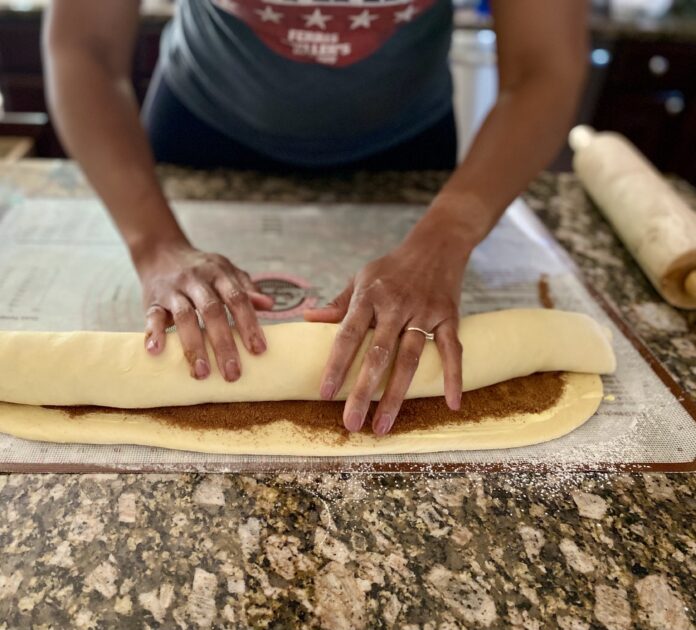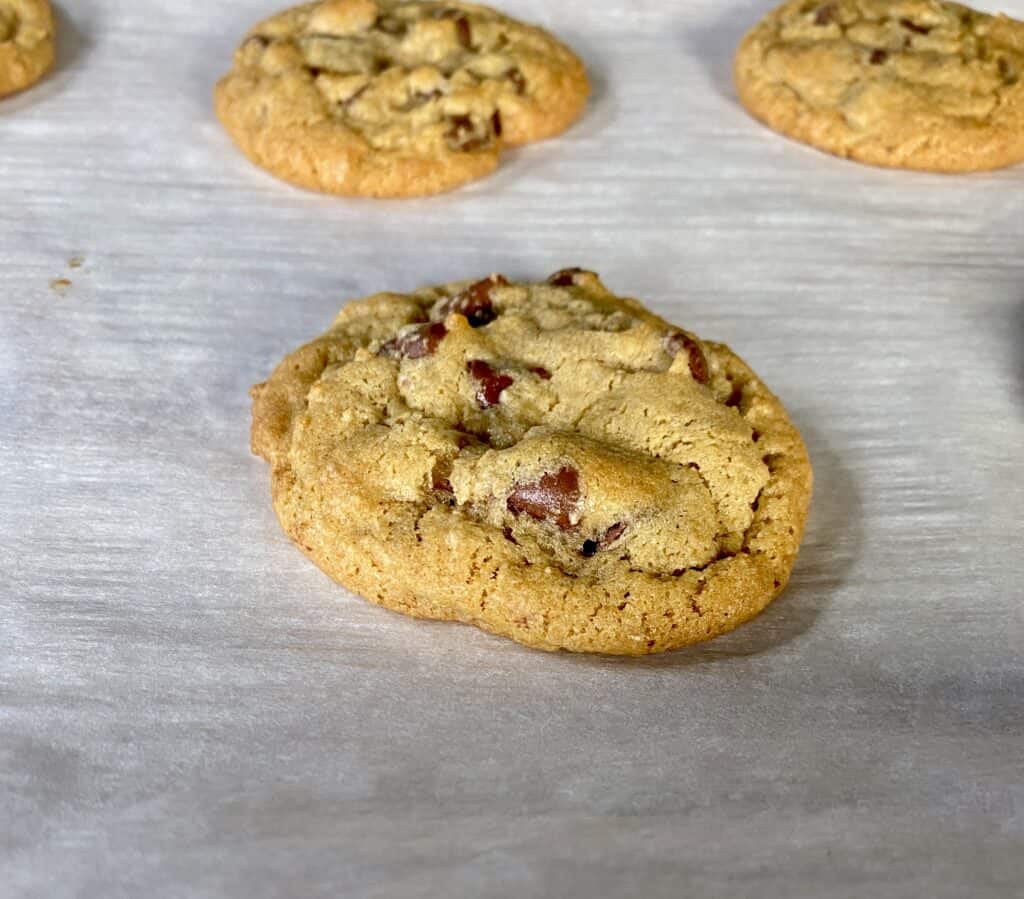Before I started my baking journey in 2014, I said this all the time about baking:
“I can cook but I can’t bake. It’s too hard.”
Does this describe you? Well, today I have three tips to help you overcome this belief and become an amazing baker, even if you’ve never tried to make a cupcake in your life.
If you want to bake, you can bake. Today I’ll help you get to the root of that frustration and help you figure out how to get on the good foot with this beautiful science.
In this Post:
- The Fundamental Truth: Cooking and Baking are the Same, but Different
- Cooks are Artists: Baking Activates a Cook’s Scientific Mind
- The Ultimate Key to Becoming a Great Baker: Adopt a Beginner’s Mindset
- Conclusion
The Fundamental Truth: Cooking and Baking are the Same, but Different
Cooking, Friend, is the process of taking raw ingredients and transforming them into a completed dish. This could include those black eyed peas that you had for Sunday dinner, or those blueberry muffins that you made yesterday.
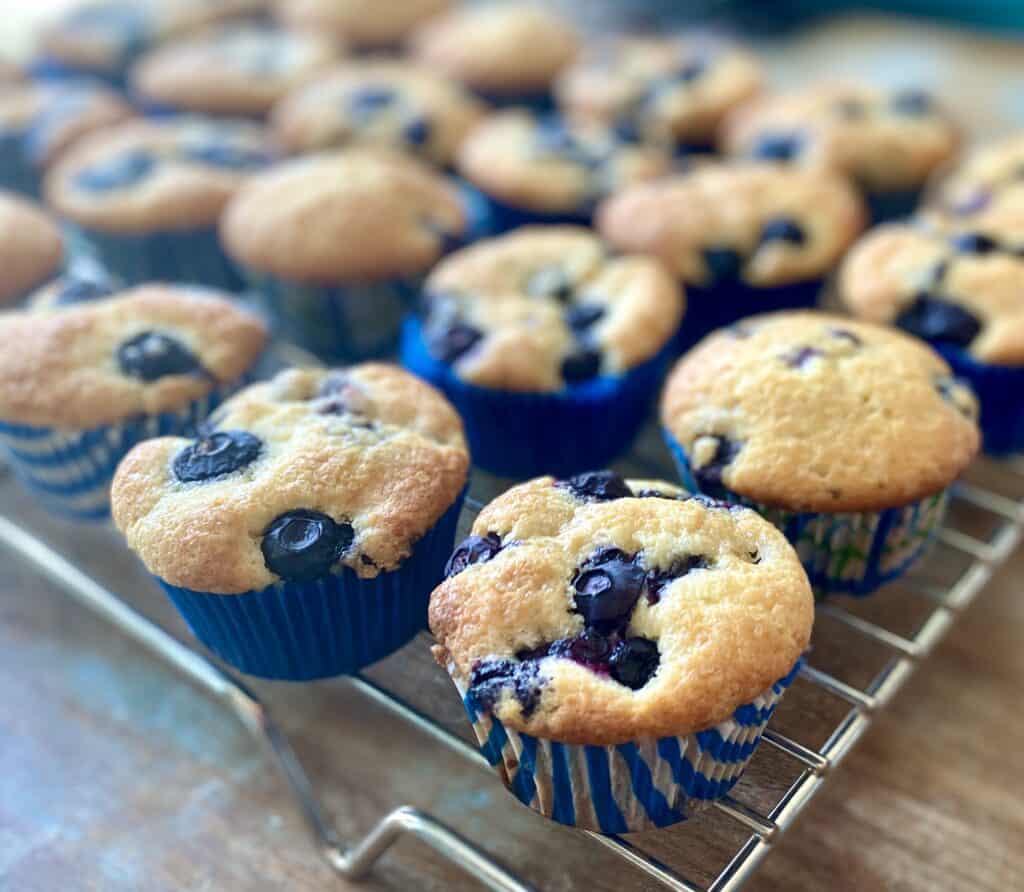
Yes, Friend. Baking is a form of cooking. It’s true! Cooking is anything that involves transforming raw ingredients. Baking, as we commonly know it, is transforming raw ingredients into pastries, cakes, or bread.
In fact, according to this very scientific definition from The Spruce Eats, baking is “fully cooking food in an oven.” This could easily refer to any number of chicken or beef dishes. However, as the same article points out, when most us refer to “baking”, we are referring to pastries and breads, not those yummy Thursday night crispy chicken thighs.
That is where the difference comes. Baking (by its common definition) requires a very scientific approach in order to reach a desired result, and the margin for error is narrow. With cooking, there is much more flexibility, as there are usually many opportunities to taste and adjust something before serving, and it’s a much more hands-on technique (with stirring, seasoning as you go, etc.).
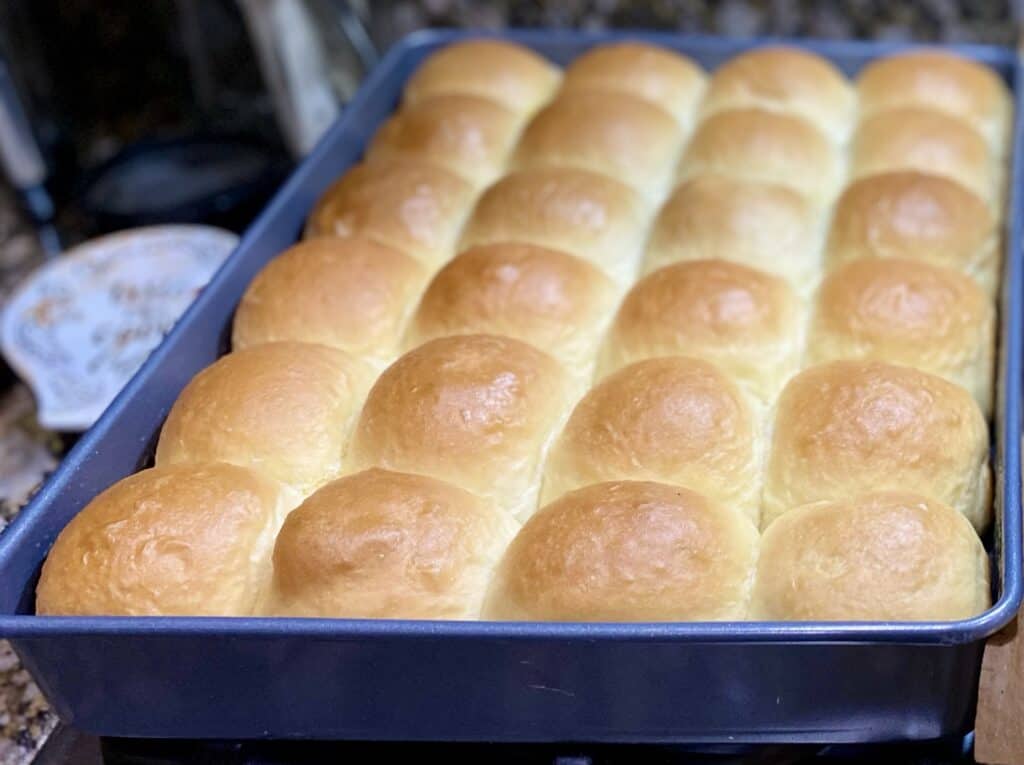
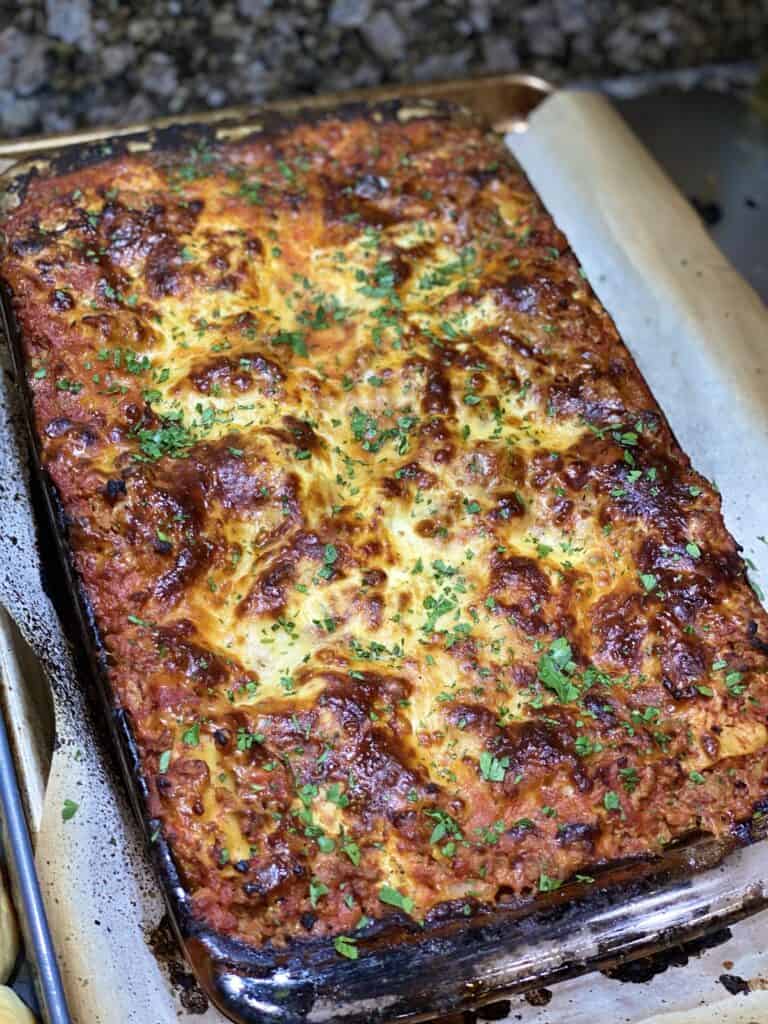
Tip #1: Start with the understanding that while baking is a form of cooking, it follows its own set of rules.
Cooks are Artists: Baking Activates a Cook’s Scientific Mind
The biggest obstacle that I had to overcome in the early days was my belief that cooking and baking followed the same rules.
The way I laugh when I think about that now…
I don’t know who needs to hear this, but cooking and baking do not follow the same rules. And this is the fundamental truth that frustrates good cooks.
If you’re used to pinching and dashing over a pot of something, tasting to adjust, then pinching and dashing again, that action becomes a part of you. Your identity as a home chef depends on your ability to season, taste, and season some more. It’s an instinct. An art form. You know your palette. You know what you’re trying to achieve. And you know that you can take baby steps to get there. Even after a dish is complete, there’s an opportunity to alter the flavor with some salt and pepper or a splash of lime juice.
Cooking allows flexibility on the issue of substitutions as well. Don’t have cilantro? You can get by with parsley. No dry white wine in the house? White wine vinegar could work just as well.
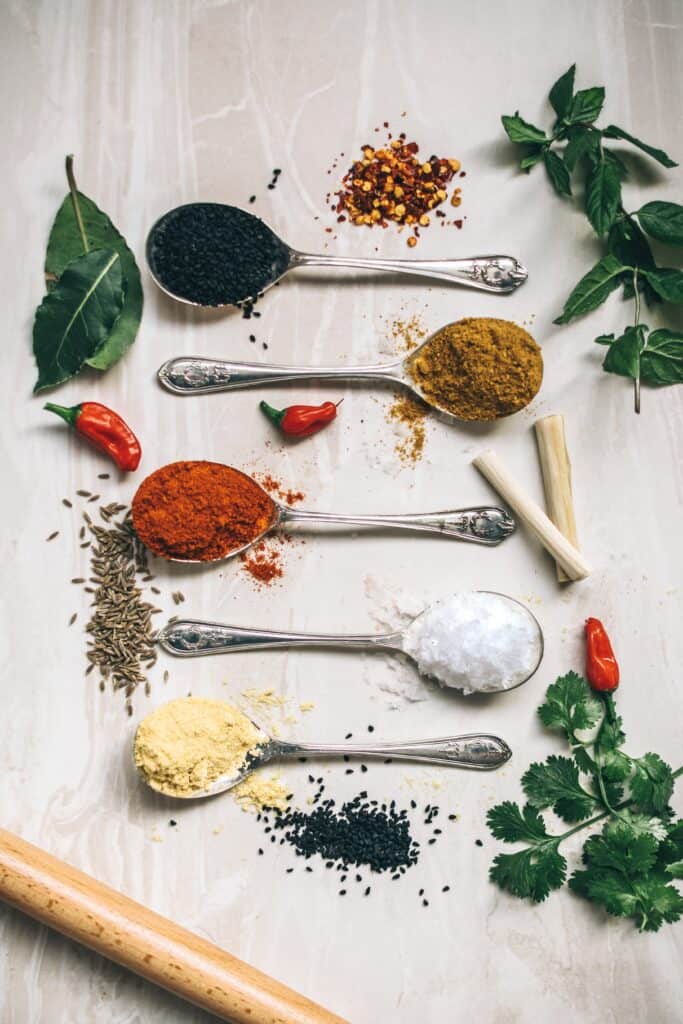
Baking is NOT THAT; successful baking relies on scientific principles as much as artistic ones. To make baked goods that taste good, bakers understand that their recipes have to rely on certain fundamental principles of chemistry and physics. For example, certain ingredients, when combined with heat, cause the Maillard reaction (browning) on the top of your cakes, cookies and breads. Leavening, combined with liquid, creates carbon dioxide and alcohol which is responsible for rise when trapped by a gluten structure. Oh, and the strength of the gluten structure depends on the protein content that’s often found in your flour and eggs.
Bakers know these rules before they take out a single bowl or spatula. Knowing these rules means that bakers have a very good idea of what to expect when they open their ovens at the end of a bake. They know exactly what to expect if they reduce the sugar by 1/2 cup or add an extra egg.
While you don’t need a chemistry degree to be a good baker, it’s important to understand that there’s no “winging it” without some basic scientific knowledge about how it all works. There are lots of opportunities for things to go wrong if we insist upon being creative without learning the basics. Without a strong understanding about ingredient properties and baking techniques, it’s simply not possible to create consistent baking recipes that will work.
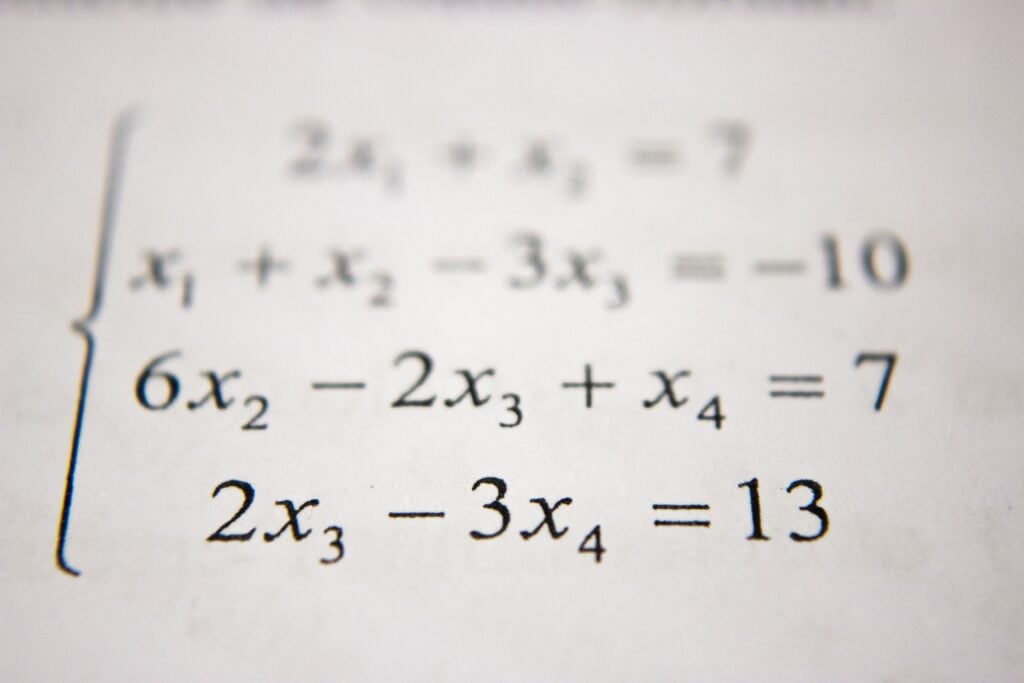
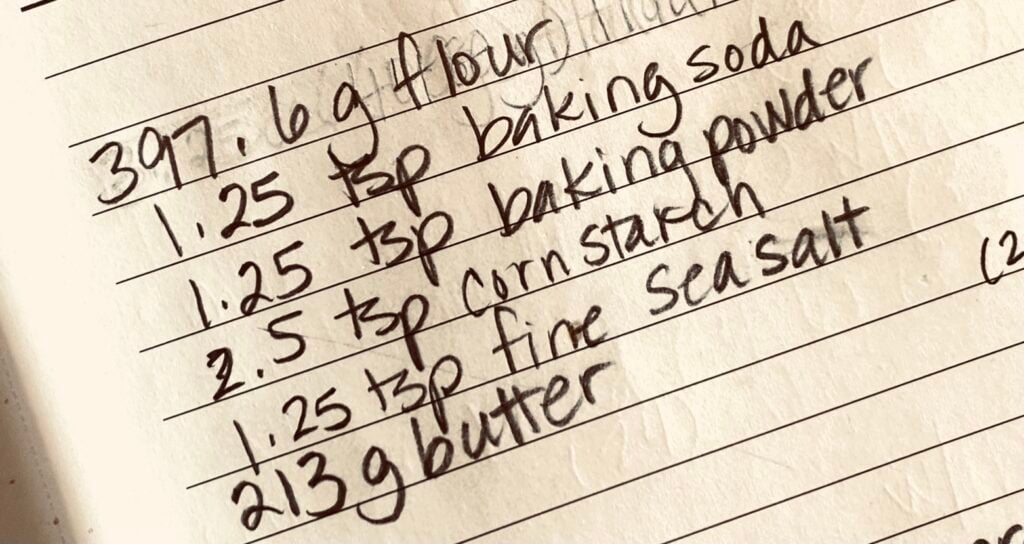
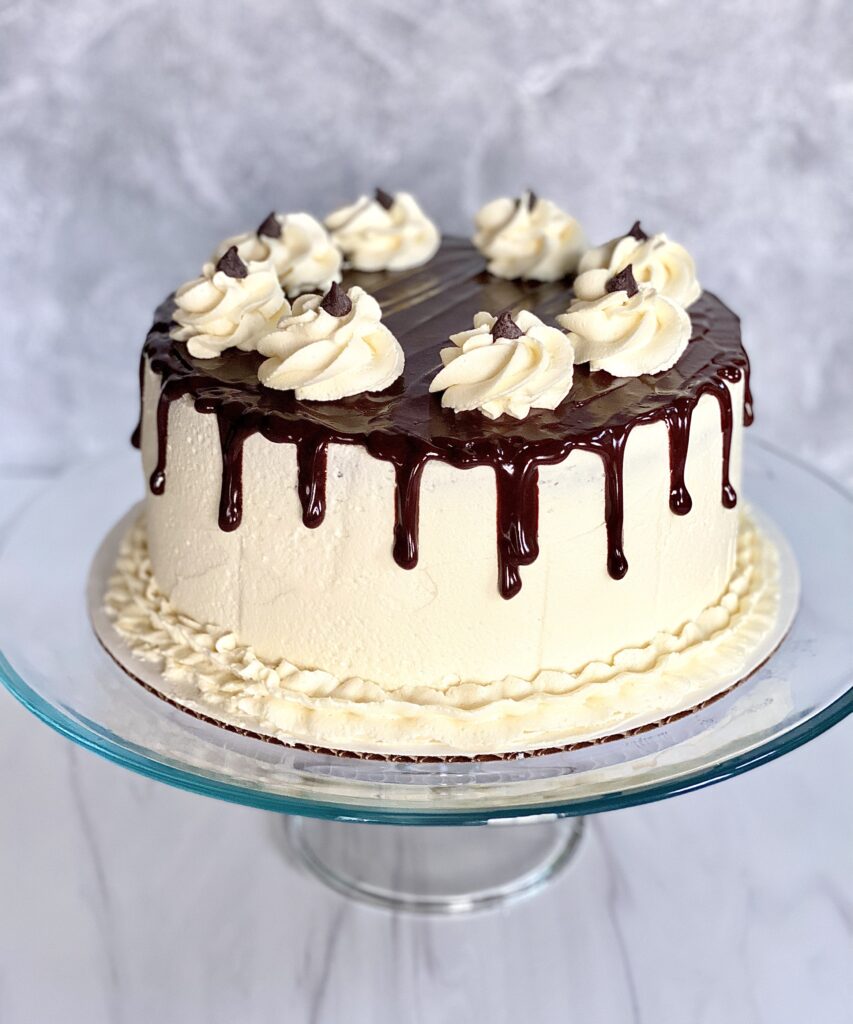
These scientific requirements are so frustrating for good cooks because they can feel constricting and lacking in imagination. This is especially true for those imaginative cooks who love to tweak their dishes on the fly. If this is you, Dear Reader, take heart. Once you read through the next section, you’ll know that you can get to that imaginative place again with baking, if you just give it a little bit of time and approach it with a beginner’s mind.
Tip #2: Understand that baking uses a different, science-based skillset and that that skillset is different than general cooking.
The Key to Becoming a Great Baker: Adopt a Beginner’s Mind
Before the mediocre baking attempt in 2014 that ultimately led to the blog you’re reading today, I had been a failed baker for my entire life.
In other words, before 2014, I couldn’t bake a potato to save my life.
The proud look on my daughter’s face as she took those mediocre sugar cookies to her class jump-started the nerd in me, so I decided to take a deep breath and start from the beginning with baking. Zen Buddhists call this a “beginner’s mind”; it involves humbling oneself and actively accepting where you are. Because you can learn how to do anything when your mind is truly open.
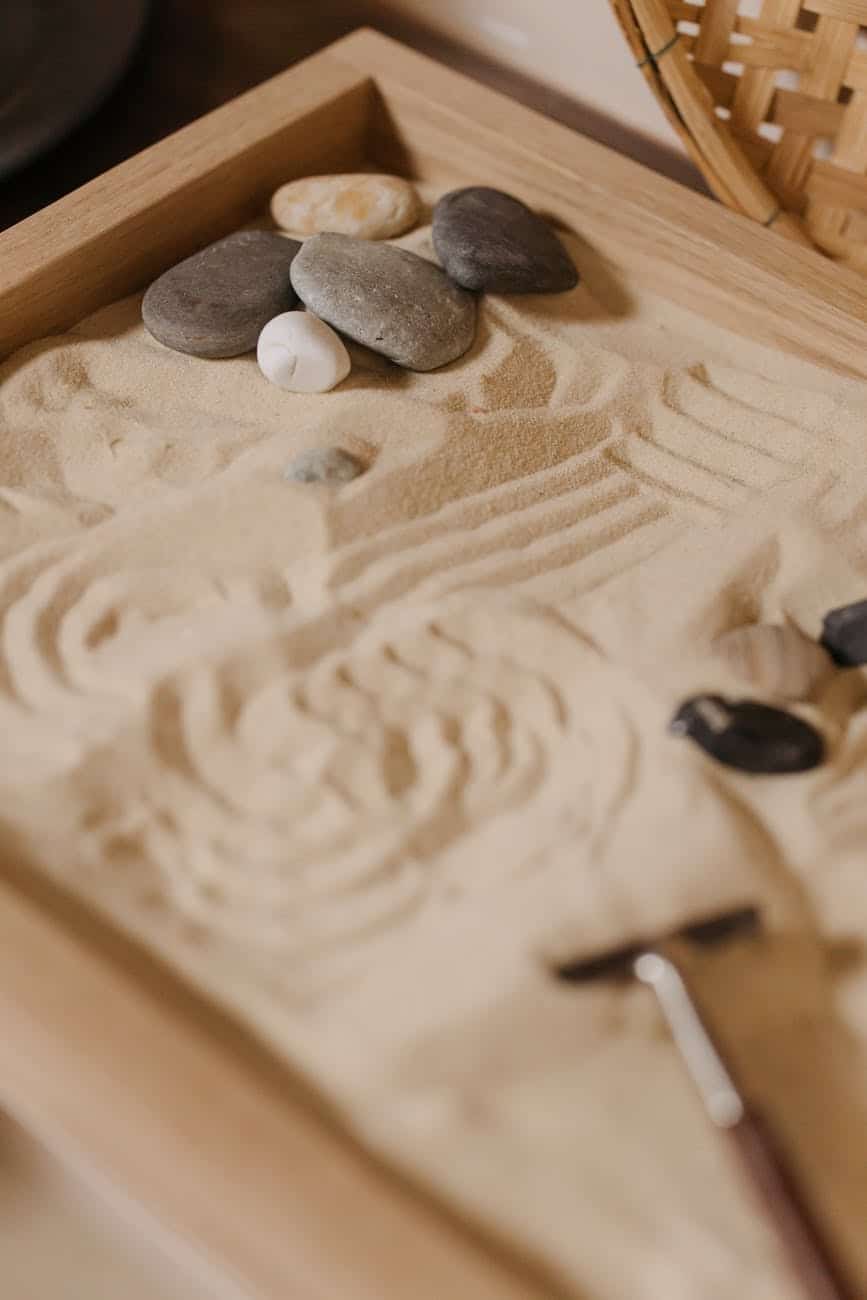
For me, this meant that I had embrace the fact that I didn’t know the first thing about baking, even though I’d been a proficient home cook since the 1980s. Not accept it begrudgingly. But embrace every part of the journey.
Approaching baking with a beginner’s mind meant that I didn’t attach any preconceived notions about what I should know or feel any shame about not knowing. It simply meant that I made myself available to learn how to bake, without judgment or expectation. It also meant that when questions arose about why and how to bake, I was able to target my study organically and learn the answers over time.
Don’t get me wrong, proficiency and creativity came with practice and study. But by adopting a beginner’s mind, I was able to take my ego out of the equation so that I could truly learn something. And that lesson, dear friend, has been invaluable. This blog is a compilation of what I have learned organically (and concepts that I continue to learn organically), wrapped up in one place for you.
Tip #3: A beginner’s mind is key to becoming a baker. This is especially true if you’re already a great cook.
Conclusion
I still approach baking with a beginner’s mind. There’s always so much to learn in this space and being curious has helped me grow from a non-baker, to a new baker, to a good baker, to a consistent and proficient baker, to someone who is confident enough in my baking ability to create my own recipes and sell baked goods to the people in my community through my custom bakery. There’s literally no downside to admitting that you’re always a beginner on some level.
If you think about it, great cooks, we all had a beginner’s mind at some point. We weren’t born with a knowledge of flavor profiles or salt and acid levels. We learned that over time; some from parents, others from grandparents, and others still from culinary schools or chefs. Baking is its own discipline that deserves the same respect. If you give it that respect, the dividends will be more than you could ever imagine.
Home chefs, the best advice I can offer about baking is to adopt the beginner’s mind. The science and technique will come with time. Be kind to yourself during the learning process and embrace where you are. And for goodness sake, laugh at yourself sometimes! There are mistakes to be made during the learning process and that is okay. Sometimes those mistakes are delicious.
Until next time!
Feeling encouraged? Looking for other encouraging articles to help you get started as a baker? Sign up for the email list!

